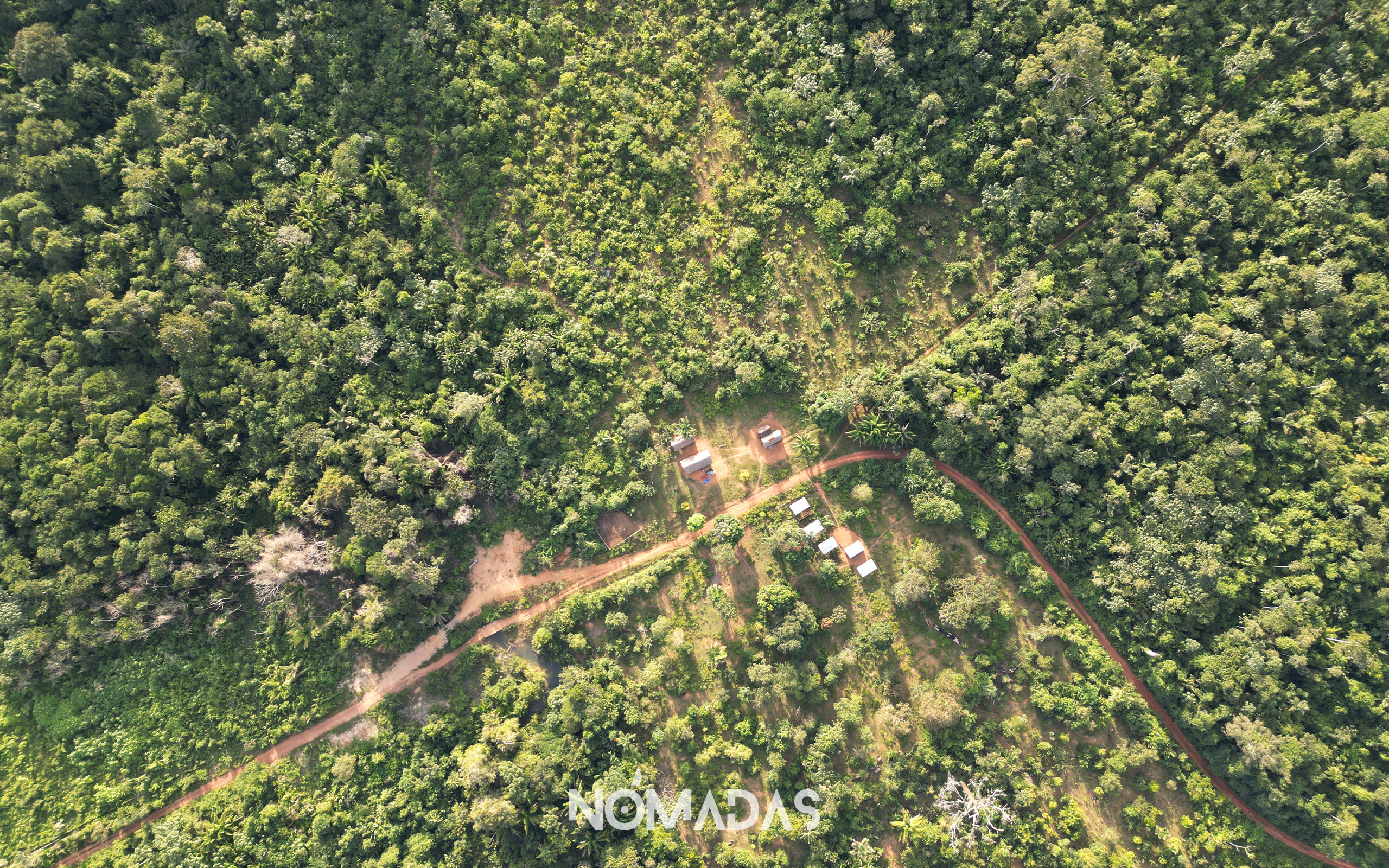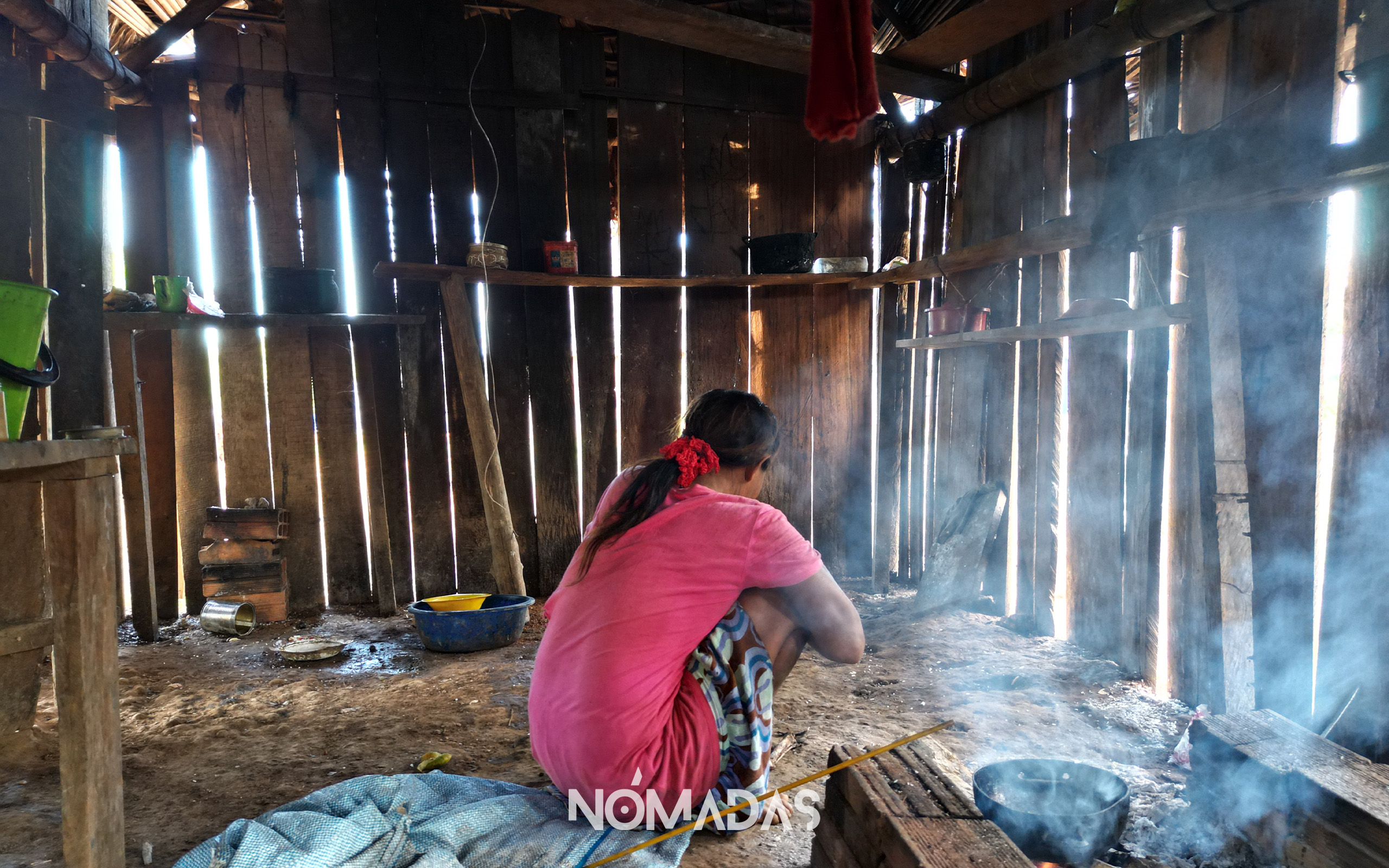


Journalist and environmental economist

Investigador y activista en temas socio ambientales
April 19th, 2024
At the end of January, an alarming case of a shady carbon market scheme was uncovered in Mongabay, an environmental digital media outlet, falsely claiming to be endorsed by the United Nations. Foreign companies were persuading indigenous leaders in Bolivia, Peru, and Panama to relinquish their rights over forests, particularly over the carbon they capture and store, in order to sell various bonds for such ecosystem services. In Bolivia, the scheme exposed by Mongabay covers 8.3 million hectares of indigenous territories, equivalent to twice the size of the Tarija department in southern Bolivia. Little or nothing of this scheme has been disclosed in Bolivian media. National and departmental authorities have not taken any action to investigate this fraud case, which three United Nations bodies have already denounced, stating that they never endorsed such initiatives.
This alarming news is not an isolated case in Bolivia but rather the spearhead of a series of schemes to commodify the environmental functions of Mother Earth, particularly those aimed at Reducing Emissions from Deforestation and Forest Degradation (REDD+).
In many cases, these are carbon market schemes that contravene the Law of Mother Earth Rights (Law No. 71) and the Mother Earth and Integral Development for Living Well Framework Law (Law No. 300). According to Law No. 71, it is a principle of mandatory compliance that «life systems cannot be commodified, nor the processes that sustain them, nor form part of anyone’s private patrimony» (art. 2). This principle is reaffirmed and expanded upon by Law No. 300, which is a framework law: «Non-Mercantilization of the Environmental Functions of Mother Earth. The environmental functions and natural processes of the components and life systems of Mother Earth are not considered as commodities but as gifts from sacred Mother Earth» (art. 4.2).

Since 2007, Bolivia has led an anti-carbon market position in climate change negotiations at the United Nations. This opposition to carbon markets was based on the realization that emission reduction certificates or carbon credits are permits to continue polluting. The logic of carbon markets is very perverse: if a company or country does not find it economically beneficial to reduce its greenhouse gas emissions, it can buy emission reduction certificates from another company or country that is doing so. In other words, carbon credits are a way to cheat and not comply with the obligation to reduce greenhouse gas emissions at a time when the planet is approaching an increase of almost 1.5°C according to the World Meteorological Organization.
One of these carbon markets is linked to forests and is called REDD+ (Reducing Emissions from Deforestation and Forest Degradation). As the name suggests, its main component is to reduce deforestation of forests and the emissions it causes, which in 2019 were estimated to represent nearly 11% of all greenhouse gas emissions. However, since avoiding deforestation is considered one of the cheapest ways to reduce carbon emissions, it is one of the main categories of carbon markets, and between 2018 and 2022, REDD+ represented between 20 and 50% of the carbon certifications issued worldwide. Its logic is as follows: if a country deforests 100,000 hectares per year and manages to deforest only 80,000 hectares, then it can issue carbon credits for the tons of carbon dioxide that those 20,000 hectares of forests would have emitted if they had been deforested. A forest that is not threatened with deforestation does not generate emission reduction certificates. In other words, if forests are fully preserved, the logic of REDD+ carbon markets does not apply. The more deforestation, the more emission reduction certificates can be put up for sale because the deforestation baseline is very high.
The process of selling carbon credits is not straightforward. It is necessary to delimit the forest area subject to deforestation; quantify the types of trees present in that area, the emissions they capture and emit when deforested; present an annual deforestation baseline and a plan to reduce that deforestation. This delimitation and measurement in terms of greenhouse gases are carried out by consulting firms or companies that earn a lot of money for this work. Then there is the process of ensuring that an accredited international certifier certifies that these are indeed the greenhouse gas emissions that will be avoided. In the world, there are a couple of companies dedicated to such certifications, of which the main one responsible for 42% of carbon emission certification is Verra Carbon Standard. It is at the heart of a scandal, involving not only itself but also shaking the carbon markets since early 2023. Independent studies have shown that only 6% of the carbon certificates certified by Verra are actually linked to emission reductions and that on average they exaggerate emission reduction levels by 400%. This has eroded trust in carbon markets and confirms the low potential for emission reductions of REDD+ and evidences its practically fraudulent nature.
Foreign companies were persuading indigenous leaders in Bolivia, Peru, and Panama to relinquish their rights over forests, particularly over the carbon they capture and store.
The next stage in the establishment process of a REDD+ scheme consists of the commercialization of carbon credits and the distribution of the profits it generates. Likewise, it is necessary to present a benefit-sharing scheme among all the actors in that forest area: indigenous peoples, Mennonites, ranchers, soybean producers, municipal government, national government, etc. The greatest benefit of REDD+ goes mainly to those who deforest the most so that they have an incentive to stop deforestation. After meeting all these requirements, which take several years and cost a lot of money, carbon credits or emission reduction certificates are finally issued. This is the moment of truth: several projects have been carried out under the calculation of 20 US dollars (USD) per ton of CO2e, but in reality, they only achieve 5 USD or simply cannot sell their carbon credits because there is not much demand due to the low emission reduction «contributions» of the Paris Agreement on climate change. In fact, for years, many more carbon credits have been issued than bought, to the point that in 2023, almost twice as many carbon credits were issued as were bought. It is worth clarifying that the carbon credits purchased in many cases were much older credits and the selling prices for REDD+-associated credits averaged USD 3.05 per ton, equivalent to a global transaction value of less than USD 250 million. In the process, the companies and intermediary consultants who prepare, measure, and certify REDD+ projects ensure significant income for themselves.
These intermediary companies and consultants are usually the ones who take the initiative to approach authorities and leaders of a forest territory to sign an agreement that they can use to secure financing. The process is carried out with grand and outrageous offers. Suddenly, a community or indigenous territory finds itself excited about the offer of receiving tens or hundreds of thousands of dollars just for maintaining its forest. It doesn’t have to do practically anything, just sign an agreement where it grants the intermediary company certain rights over its indigenous territory so that the intermediary can seek investors. As a gesture of goodwill, the intermediary company gives the community some motorcycles, seeds, or some money. Most members of the community or indigenous territory are not informed or consulted freely and informed beforehand to give their consent. Some leaders fall prey to deception while others are fascinated by the perks.

Since 2006, the Government of Bolivia has been opposing carbon markets and REDD+ for the reasons previously mentioned. In 2010, it organized the People’s Summit on Climate Change and the Rights of Mother Earth. There, the foundations were laid for what became Law No. 71 and subsequently Law No. 300. The latter states categorically: «All plans and programs for the reduction of Greenhouse Gas (GHG) emissions will focus on the non-mercantilization of the environmental functions of Mother Earth’s components, so they will not include financing mechanisms associated with carbon markets» (art 35.2).
However, for a few years now, there have been several REDD+ projects in Bolivia that issue limited amounts of carbon credits, and very rarely do they manage to sell their credits, in small quantities and at very low prices. These are schemes for small, private, or community surfaces, that stay outside out of the law and they are mostly subject to certification by Verra Carbon Standard. In total, registered at Verra, there are 5 REDD+ projects, 4 in the validation process to start carbon certification, and 1 with its validation completed and certifying carbon credits since 2011. In total, these projects cover about 3.6 million hectares, equivalent to the surface area of the Tarija department. Of these 5 projects, 4 are driven by companies and one, the only one currently in force covering 235 hectares and driven by an individual.
The main of these projects, covering about 3.5 million hectares, is driven by a foreign company called Green Carbon and aims to be valid until 2047. This initiative began in 2016 and is associated with CIDOB and 5 indigenous territories (TCO Isoso, TIPNIS, Monte Verde, Lomerio, and Itonoma). The GreenCarbon Bolivia website does not provide much explanation of its projects, but on the international GreenCarbon website, it is clearly stated that they are REDD+ projects in Bolivia. It is still in the verification stage by the carbon credit certifying company Verra. It is an initiative that aims to be able to generate more than 12.3 million tons of carbon credits annually. That is no small feat, as it represents 16% of the carbon certificates issued for forest-related topics in 2023. Although the distribution of benefits among the different actors in this initiative has not been transparent, it establishes that indigenous communities must cede until 2027 to a foreign company all their rights over the avoided carbon emissions they generate. Beyond the dubious legality of this project, its magnitude is alarming and could attract the interest of other companies seeing the emergence of deforestation in Bolivia as a great business opportunity.
National and departmental authorities have not taken any action to investigate this fraud case, which three United Nations bodies have already denounced, stating that they never endorsed such initiatives.
Carbon market projects are advancing deceptively and dangerously in Bolivia, with agreements and documents signed without the knowledge of all members of indigenous territories and based on false promises that violate the rights of indigenous peoples and Mother Earth.
It is the obligation of national authorities, the legislature, the prosecutor’s office, and the attorney general to investigate, prosecute, and sanction these companies and consultants that are violating the Political Constitution of Bolivia, which clearly states: «Being social property of the Bolivian people, no foreign person or company, nor any private Bolivian person or company, may register the ownership of Bolivian natural resources on stock markets, nor may they use them as means for financial operations of securitization or security» (art. 357).
The Plurinational State of Bolivia is being overrun by the ‘Green cowboys’ of carbon markets under the sight and patience of those who are called to defend it. Only the vigilance and participation of indigenous peoples and civil society as a whole can put a stop to the deception of carbon markets in Bolivia.
***
Las declaraciones y opiniones expresadas en este artículo son de exclusiva responsabilidad de su autor y no representan necesariamente el punto de vista de Nómadas.

Economista ambiental, enfocado en cadenas de valor y corporaciones con más de 10 años de expertise. Investigador y activista boliviano por los bosques con experiencia en ongs nacionales, organismos multilaterales y think thanks globales (WWF, FAO, Climate Focus, CIPCA).
Te contamos desde el interior de los escenarios de la realidad, iluminados por el faro de la agenda propia, el texto bien labrado y la riqueza poética del audiovisual y de la narrativa sonora, combinaciones perfectas para sentir el corazón del medioambiente y de los anónimos del Planeta.
